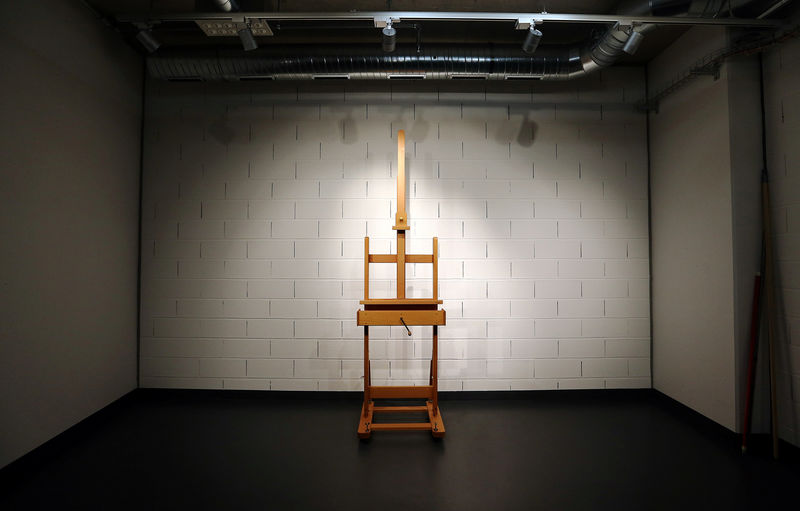By Silke Koltrowitz and Paul Arnold
GENEVA (Reuters) - Freeports springing up around the world as more investors store and trade physical assets are coming under increased scrutiny as potential black holes for dodging taxes, laundering money or financing extremists as bank secrecy erodes.
Looted Turkish and Italian antiquities seized at the biggest Swiss freeport in Geneva raise the possibility that many artefacts illegally excavated from Libya, Syria or Iraq could lurk in these secretive storage sites, or be stowed there in the future.
Quite apart from the loss of such treasures from the public eye, there is the fear they could be used to help fund shady practices and the activities of militant groups.
Aware of this, some freeports - zones usually near ports or airports where goods can be stored and traded without facing customs duties or sales tax - are taking a proactive stance to help head off tighter regulation of a business that has become a backbone of the global art world.
"We know that lootings helped finance terrorism in the past ... To avoid this happening again with Islamic State or others, we decided to systematically check incoming antiquities, starting Sept. 19," David Hiler, chairman of the Geneva Freeport, told Reuters in an interview.
The company that manages two sites in an industrial area and at the airport is pressing ahead at its own expense to avoid further damage to its reputation that could hurt business.
Founded in 1888 and majority-owned by the local government, the Geneva Freeport rents out space to 230 tenants, mainly logistics firms, but also lets many small customers store goods.
SAFE AND DISCREET
Freeports were created to facilitate trade by exempting goods in transit from import duties or sales tax, but are now used mainly to store high-value goods discreetly and safely.
Some small centers in Switzerland have closed, leaving 10 Swiss freeports including two near Zurich.
But the Geneva Freeport has grown briskly. It opened a high-security art facility with over 10,000 square meters in 2014, taking total capacity to 52,000 square meters.
Swiss customs, in charge of checking goods in freeports since they became a part of its remit in 2007, does not publish the value of goods declared by customers.
A 2014 Swiss Federal Audit Office (SFAO) report quotes estimates of over $100 billion for the Geneva sites.
The 2008 financial crisis and a crackdown on tax havens that diluted banking secrecy in Austria, Luxembourg and Switzerland piqued interest in relatively confidential freeports, suited to store physical assets coveted at times of market volatility.
A boom in the art market up until 2014 - followed by a slight slowdown to $63.8 billion in 2015, according to the TEFAF art market report - led to art freeports opening in Singapore in 2010, Monaco in 2013, and Luxembourg and Beijing in 2014. New facilities in U.S. tax haven Delaware mainly cater to the busy New York art market.
Not just storage sites, freeports offer art-related services ranging from restoration and framing to display showrooms. Testing and inspection firm SGS (S:SGSN) launched its own art services last year, with an on-site lab at the Geneva Freeport.
The New York Times reported the Geneva site alone stores treasures from ancient Rome, museum-quality paintings by old masters and an estimated 1,000 works by Picasso.
ASSESS RISKS
Experts cite risks of fraud and money laundering if dirty or untaxed funds are used to buy art stashed away at a freeport.
"If a wealthy German stores his art in a Swiss freeport, it is almost impossible for German tax authorities to gain access to it," said German tax lawyer Thomas Koblenzer.
The 2014 SFAO report faulted insufficient checks by customs, triggering somewhat tighter rules for freeports. Since Jan. 1, inventories of sensitive goods such as diamonds, art or weapons need to state the owner's name.
But if the owner is an offshore company, the real beneficiary can stay hidden, as in the case of an Amadeo Modigliani painting of disputed ownership seized in Geneva in April after documents leaked in the Panama Papers scandal drew attention to its presence.
"The freeports ... should be considered as a kind of financial intermediary with the obligation to identify and document the beneficial owner for each good that is or was stored there", said Claudio Mascotto, prosecutor in Geneva.
"They should be compelled, like banks, to announce every suspicious transaction," he said, adding this required a change to federal laws but was the only way to trace and seize looted or stolen art and honor Switzerland's international commitments.
The Financial Action Task Force, an inter-governmental body to combat money laundering and the financing of terrorism, visited Switzerland and the Geneva Freeport this year and will soon publish its assessment.
The fact that freeports exist in many countries with different legal regimes makes Swiss politicians hesitate to tighten rules that may put the Swiss art market at risk. The major Art Basel fair and Geneva auctions rely on the freeport.
Hiler said Swiss freeports should follow the example of Luxembourg where the freeport can only work with operators approved by customs, a measure also recommended by the SFAO.
